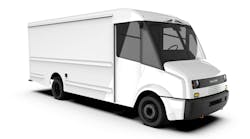This summer, the American Transportation Research Institute (ATRI) expects to release the results of a two-year study of idle-reduction systems done in partnership with fleets Schneider National, Diversified Transfer & Storage and National Freight, Inc. National and Diversified kept data on APUs, while Schneider studied thermo-cooled and battery-powered AC systems in addition to the fuel-operated heaters they already had.
“Everybody was able to lower their percentage of idle time,” said Michael A. Tunnell, director for environmental research for ATRI. “We expected to see that. What will make this study useful to fleets, we believe, is the real world look at the process of implementing various idle-reduction systems.”
“It seems to me that there are opportunities for everything now, it depends on the type of operation, on what a fleet needs,” Tunnell noted. “There will be a need for a variety of idle-reduction options for some time to come. We still get calls from companies developing new solutions, too. This story isn’t finished yet.”
ATRI has already published other research on idle reduction, including a February 2006 study, “Idle Reduction: Fleet Preferences Survey,” which was prepared for the New York State Energy Research and Development Authority (NYSERDA). At that time, 81% of fleets using onboard idle-reduction technologies reported that they were either satisfied or very satisfied with the systems they were using.
The average cost per hour of idling was estimated at $3.00 per hour, with the cost of diesel ranging from $2.35 to $3.14 per gallon. The complete report is available on the ATRI website


